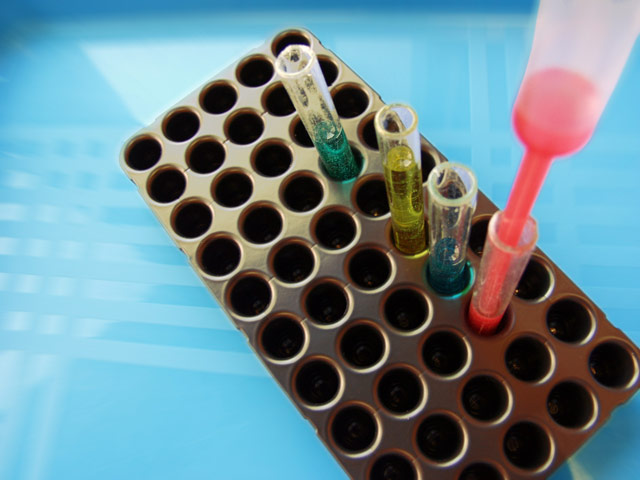
WASHINGTON D.C. - Scientists have spat out a spate of new studies that suggest spit could be the preferred medical diagnostic tool of the future.
Many of the molecules and proteins found in blood are also found in saliva. Spit tests might one day spot cancer or identify drug use.
"Saliva is a window into the bloodstream," said Edward Cone, of ConeChem Research, LLC, in one of several presentations on the topic here Friday at the Annual Meeting of the American Association for the Advancement of Science.
A saliva sample for narcotics testing can often give a more accurate representation of what's really going in the body than urine, Cone said. Some drugs, like cocaine, can appear in the saliva long before they show up in urine, and a saliva sample is less susceptible to tampering than the "go off by yourself and put some in a cup" method.
Collecting saliva is painless, less invasive and easier.
Spit to go
A research team lead by Daniel Malamud of the University of Pennsylvania is developing a portable device that can screen for the presence of a variety of disease-causing microorganisms simultaneously.
Sign up for the Live Science daily newsletter now
Get the world’s most fascinating discoveries delivered straight to your inbox.
Malamud envisions a credit-card-sized cassette that uses a patient's saliva sample to detect the DNA and other telltale molecules of viruses and bacteria. The cassettes would then be inserted into a display device, or the information could be sent wirelessly to an off-site computer for analysis.
"The data could be collected in an ambulance or a police car and sent somewhere else," Malamud said.
According to Malamud, laboratory experiments have shown the technique to be successful in detecting the presence of the HIV virus and of another bacterium closely related to anthrax. Malamud believes cassettes could be made to test for specific groups of bacteria and viruses.
A cassette could, for example, test for multiple sexually transmitted diseases at once. Another could quickly determine if a patient's respiratory problems are due to a bacterial or viral infection.
Cancer detection
Saliva tests may one day be used as a diagnostic tool for certain diseases like cancer, said David Wong, a professor at the in the School of Dentistry at the University of Southern California, Los Angeles. Wong and his team are working to identify all of the proteins secreted in saliva, and they hope to one day use this information to screen for specific diseases.
"Our goal is to identify ten high-impact diseases using salivary proteins by 2007-2008," Wong said. Some 3,000 salivary proteins have been identified to date. Of these, 200 are core proteins found in the saliva of everyone, and four have been linked to oral cancer.
"What we hope is that in the not too distant future," Wong said, "instead of telling us to take two aspirins, a doctor will say 'spit and call me in the morning."









